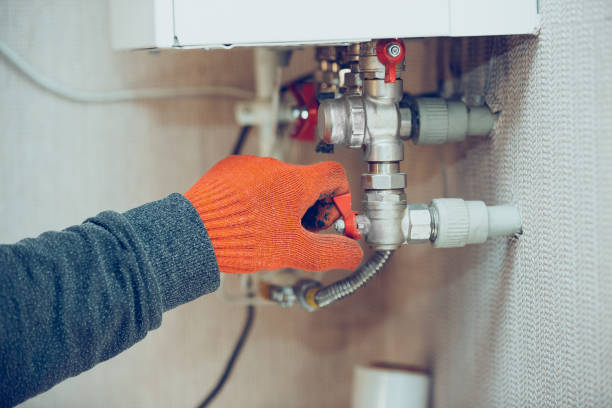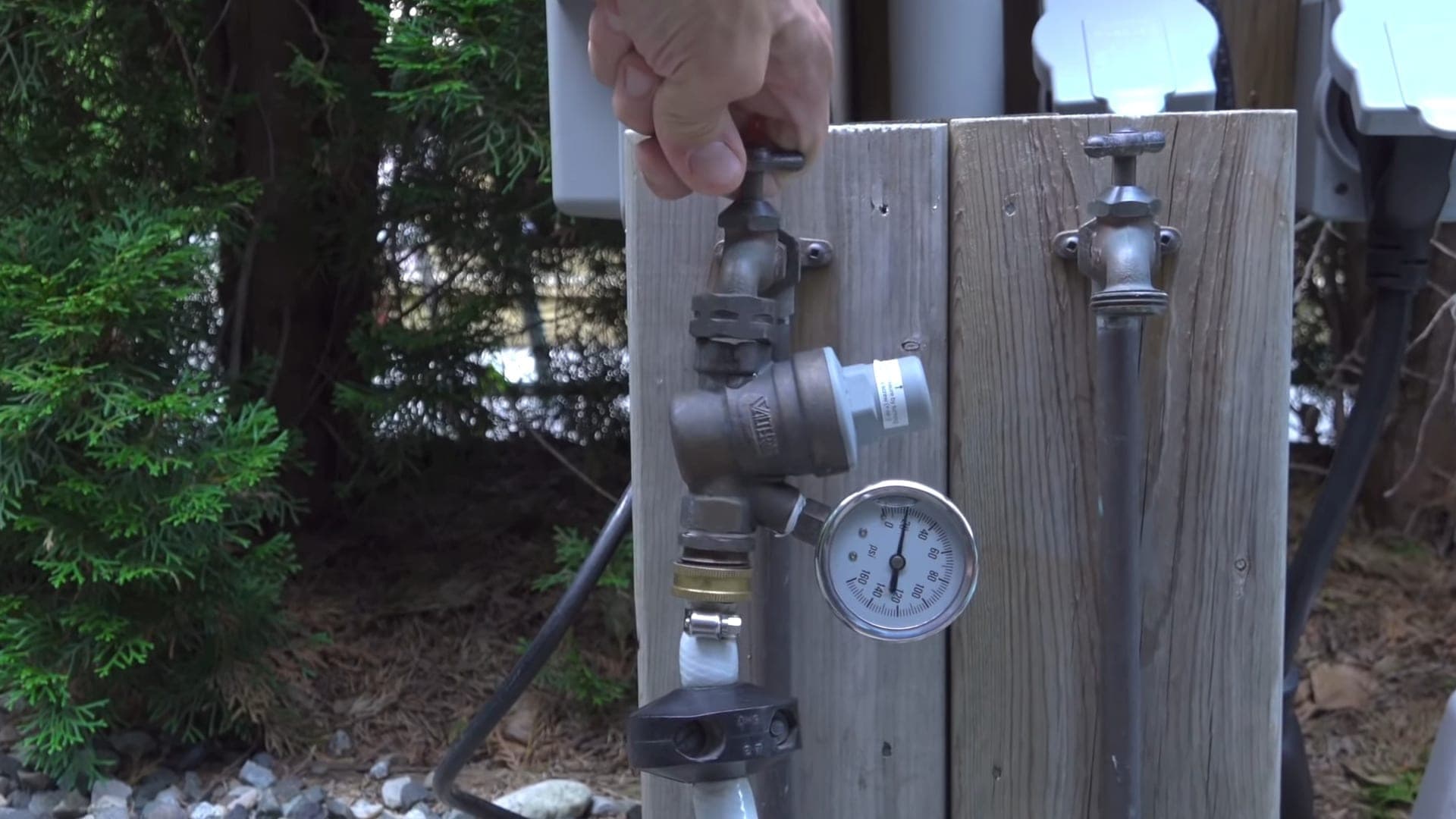How do you really feel when it comes to 4 Ways to Troubleshoot Low Water Pressure?

Low water pressure in your house can be a discouraging problem, affecting everything from showering to cleaning recipes. If you're experiencing weak water circulation, there are a number of feasible causes and solutions to discover. In this guide, we'll discuss common reasons for low tide stress and functional steps to attend to the issue efficiently.
Introduction to Low Water Stress
Low water stress happens when the circulation of water from your taps, showers, and other components is weak than usual. This can make day-to-day tasks a lot more tough and much less efficient. Recognizing the root causes of low tide stress is vital to finding the ideal solution.
Usual Reasons For Low Water Stress
Faulty Stress Regulators
Pressure regulatory authorities are responsible for maintaining constant water pressure in your home. If they malfunction, it can result in low tide pressure or unequal flow throughout the house.
Municipal Water Supply Issues
Often, the trouble exists outside your home. Metropolitan water supply concerns, such as main line leakages or maintenance work, can temporarily reduce water pressure in your location.
Pipeline Obstructions
With time, pipelines can end up being obstructed with mineral deposits, sediment, or particles, restricting the flow of water. This is a typical problem in older homes with galvanized steel pipelines.
Corrosion
Deterioration within pipelines can cause leaks and reduced water pressure. Rust accumulation can restrict water flow, specifically in maturing plumbing systems.
How to Diagnose Low Tide Pressure
Examining Pipelines
Examine noticeable pipelines for indicators of leakages, corrosion, or blockages. Focus on any uncommon audios, such as banging or rattling pipelines, which might suggest problems within the plumbing system.
Consulting with a Plumber
If you're not able to pinpoint the reason for low tide stress, consider hiring a specialist plumber to perform an extensive evaluation. They can recognize underlying concerns and suggest appropriate remedies.
Examining Taps and Fixtures
Begin by evaluating the water pressure at different faucets and components throughout your home. If the problem is separated to certain locations, it might show localized problems.
Do It Yourself Solutions to Take Care Of Low Tide Pressure
Flushing Hot Water Heater
Sediment buildup in the hot water heater can restrict circulation and decrease efficiency. Flushing the tank periodically assists get rid of sediment and preserve ideal performance.
Checking Pressure Regulatory Authority
Guarantee that the stress regulator is functioning appropriately. Readjusting or replacing the regulatory authority can assist recover correct water stress throughout your home.
Cleaning Up Aerators and Showerheads
Natural resources can gather in aerators and showerheads, minimizing water circulation. Get rid of and clean these parts consistently to boost water pressure.
Clearing Clogs in Pipes
For minor obstructions, attempt using a plumbing snake or chemical drain cleaner to clear blockages in pipes. Beware when utilizing chemicals and adhere to safety guidelines.
When to Call a Specialist Plumber
If DIY initiatives fail to fix the problem or if you believe substantial plumbing issues, it's ideal to look for support from a licensed plumber. They have the experience and tools to resolve intricate problems safely and effectively.
Safety Nets to Maintain Water Stress
Installing a Pressure Booster
Take into consideration setting up a stress booster pump to boost water stress in locations with consistently reduced flow. This can be especially advantageous for multi-story homes or properties with high-demand fixtures.
Tracking Water Use
Bear in mind water usage practices and stay clear of ill-using the plumbing system. Easy modifications, such as astonishing showers and washing loads, can assist keep ample water stress.
Regular Maintenance
Schedule routine maintenance for your plumbing system to prevent concerns such as corrosion, leakages, and obstructions. Addressing minor issues early can assist prevent even more considerable repairs later on.
Verdict
Taking care of low water stress can be frustrating, yet recognizing the underlying reasons and applying appropriate services can bring back optimal circulation throughout your home. Whether it's cleansing aerators, examining pipelines, or speaking with a plumber, taking proactive steps can make certain a consistent supply of water for your everyday requirements.
How to Fix Low Water Pressure In Your Home
Municipal Water Supply Issues
Scheduled maintenance, high demand, and water main breaks are all potential causes for low water pressure within a city or county’s water lines. While there’s not much you can do to personally fix a problem with your city or county’s water supply system, you can play a big role in documenting the issue and alerting those who can.
How to fix it:
Ask your neighbors if they are experiencing any issues with low water pressure. If multiple homes are affected, it’s likely related to the city’s water line. Contact the local Water Authority to see if there is any maintenance taking place that might be affecting your supply. Also let them know of your specific issues. If other homeowners report the same issues, they’ll know that there could be a larger issue to look into. Faulty Fixtures
A damaged or clogged shower head, faucet or appliance is the first thing we’d suggest checking, especially if low water pressure appears to be isolated to a specific area of your home.
How to fix it:
First, turn off the main water supply to your home. Check the affected appliances for build-up or debris. In the case of a faucet, you can simply unscrew the aerator at the tip of the faucet. Showerheads should be fully detached from the water pipe. While the appliances are detached, you may want to check the water supply to determine if the fixtures were in fact the issue. To clean, soak the showerhead or aerator in vinegar and brush off any visible debris. Reattach the fixtures and check the water pressure again. If it is still low, there is likely a deeper issue at hand, which can be determined by a professional plumber. Pipe Obstructions
Mineral deposits, rust or other debris within water pipes can lead to blockages or corrosion over time.
How to fix it:
When you think of a clog, you probably think of a drain clog. While there are many DIY solutions to clearing a drain, clogs in a water pipe will almost always require the help of a professional plumber. A plumber will be able to locate the affected pipe and clean out any debris or mineral deposit buildup. In severe cases, the pipe may need to be replaced. Your plumber might also recommend a water softening system to remove the minerals from your home’s water supply that can contribute to pipe blockages over time.
Plumbing Leak
Undetected water line leaks can divert water away from your residential pipes, reducing the water pressure in your fixtures.
How to fix it:
Check your water meter by turning off all water sources and monitoring the meter for any movement, which could be a clear indicator of a potential leak. Check all visible pipes for signs of leaking, including water stains, active dripping or damp spots around the pipe. Inspect fixtures, including faucets and showerheads, for any drips. Test the pressure but recording the pressure with the main water valve shut off. Leave off for a few hours and test again. A significant drop in pressure is a clear sign of a leak. https://kiddcoplumbing.com/plumbing-blog/how-to-fix-low-water-pressure/

I am very involved in 10 Reasons for Low Water Pressure in Your House and I am assuming you enjoyed reading the article. Are you aware of another individual who is very much interested in the subject? Why not share it. I praise you for being here. Revisit us soon.
Click Here